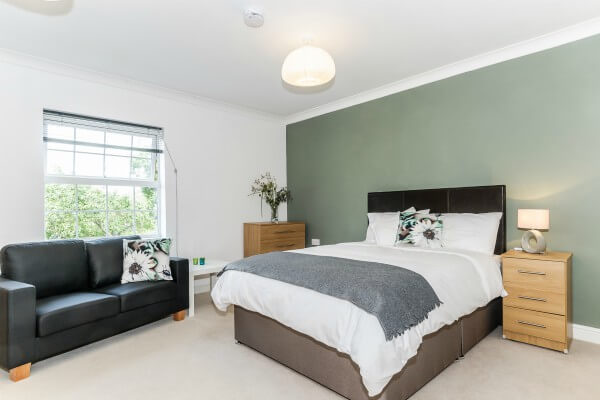Moving On

Following on from our summer feature on Boomerang Kids – kids who come back to live at home after being away at university, travelling or working away – we spoke to Anne Ratnarajah of Baobab Property Company who specialise in shared living accommodation which might provide the solution to the ‘Boomerang’ phenomenon. Here’s Anne’s advice…
Taking the next step, moving away from university or from home, can be as daunting as it can be exciting. For many it means moving to a new area, where you do not know anyone, other than new work colleagues. Finding somewhere to live can be nerve-wracking.
But what if you could find somewhere that feels like a home, like a family unit? Many landlords catering for young professionals have children of their own and understand how it feels. Some set up shared living (also known as co-living) where individuals have their own rooms, but share the rest of the facilities of the house. Much like student accommodation, but you enter into this on individual contracts. For someone coming into a new area it is reassuring to know you are sharing with others in similar circumstances.
Many co-living units are now high quality. Youngsters are becoming more discerning. With more competition in the supply market too, landlords have had to up their game to attract tenants and to keep them. It therefore makes more sense to try to ensure that tenants feel at home, and that they are part of their own little community or family unit.
What You Need to Know
When looking for somewhere to live, check whether you are dealing directly with the landlord or with an agent. An agent is less likely to try to match the occupants of a house. A landlord, or someone in their team, is more likely to ensure everyone in the house would get on. A good landlord should introduce you to the other tenants during the interview or viewing process so you can get a strong impression of the dynamics and atmosphere in the house.
In shared accommodation, all bills are usually included in the monthly rent so you do not have to worry about budgeting for extra outgoings – you know exactly how much you are paying each month. Do check before signing a contract that there are no additional costs.
The added bonus of shared living is that it is cheaper than renting on your own, and therefore enables you to start saving for your own first step onto the property ladder.
Rules and regulations have recently changed for houses in shared/multiple occupation (often referred to as HMOs); many councils will have their own additional rules as well as those set by central government. The general rule is that any house shared by 5 or more people has to be licensed with the local authority. To this end, houses have to be fitted with fire-doors; integrated smoke detector system; adequate facilities in the kitchen; minimum room sizes; and regular gas and electrical safety checks. The licence has to displayed in a communal area of the house. The most recent change in legislation is the fee ban, though this has again raised much debate about the effect on the Private Rental Sector and the impact on rents.
To conclude, take your time to look around and do not hesitate to ask questions of the landlord and the other tenants. Make sure you would feel comfortable. It is after all going to be your home.
